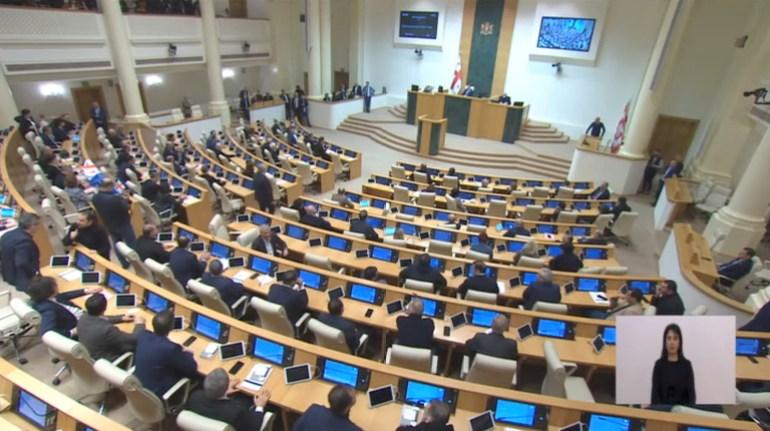Could Georgia’s foreign agents bill backfire? Between bad and worse
In April 2024, the Georgian government renewed its attempts to pass the long-debated foreign agents bill that sparked a new round of nationwide protests with the European Union (EU) criticism of the Georgian Dream government for this bill. The law would have required civil society groups and the media to register as being “under foreign influence” if they receive funding from abroad. The move comes just over a year after the proposals were dropped in the face of massive public outcry and huge street protests in Tbilisi. Although many Western countries harshly criticized the Georgian government’s proposed bill, the head of Russian State Duma Vyacheslav Volodin praised the attempt to introduce that bill.
According to the Georgian Dream party, after adopting the new bill, organizations receiving funding from overseas would be obliged to declare they are carrying out the interests of a foreign power. Unsurprisingly, the bill has been denounced by critics as the "Russian law" because of its parallels with a "foreign agents" legislation used by Moscow to clamp down on criticism of the Kremlin. The bill passed its first reading in parliament on April 17 with 83 votes by members of the ruling Georgian Dream party, while the opposition parliamentarians boycotted the vote.
In the last ten years, the Russian government overwhelmingly banned foreign NGOs in the country making them to suspend their actions and flee the country. The pretext for such a move was “national interest related concerns.” As a result of the crackdown on foreign and local NGOs, Russia nearly severed ties with many non-governmental institutions, which further led to its isolationism in Europe.
Therefore, the impact of the Russian law triggered fears in Georgia that it would slide toward Russia-oriented sphere as many post-Soviet states recently did. For example, Kyrgyzstan recently followed the suit and adopted a “foreign representatives” law that was copied almost entirely from the Russian equivalent. It would apply the designation of “foreign representative” to any NGO that receives foreign funding and engages in vaguely defined “political activity”. Hence, local opposition groups see the return of the draft law as a further indication of the ruling Georgian Dream party’s intention to steer the country away from Europe and toward Russia. The potential for the bill to shift Georgia's political orientation is a major concern for many in the country, who fear a loss of the progress made in aligning with Western values and institutions.

Indeed, the government’s recent decision to move forward with the bill has ignited a political crisis in the polarised South Caucasus country, which has hopes of joining the European Union and was awarded EU candidate status in December 2024. Some argue that the ruling GD government has ties to Russia, though insists on having pro-European aspirations. The passage of the bill could potentially strain Georgia's relationship with the EU and push it closer to Russia, a scenario that many in the country fear.
Unlike the Georgian authorities, the EU, the US and the UK governments have indicated that the bill is a threat to pro-Western ambitions. However, it's worth noting that among the EU members, Hungary adopted a similar law in 2017, while recently pushing a new sovereignty protection law, creating an investigative body with sweeping powers to gather information on groups or individuals that receive foreign funding and may try to influence public debate. These reactions highlight the potential for the bill to affect Georgia's relations with Western countries.
In this regard, Georgia’s decision to review the foreign agents bill reveals the existing influence of Russia in the post-Soviet region, despite debates regarding its waning influence amid the Russo-Ukraine war. However, supporters of the bill hoping to use it in such way should also keep in mind that Georgian society has a positive record of defeating governments that went too far in their authoritarian tendencies, and cool heads may therefore still prevail. The potential consequences of the bill's passage could include a shift in Georgia's political orientation, strained relations with Western countries, and increased influence from Russia.

The ruling party, the Georgian Dream, uses state-affiliated media, social media pages and “administrative resources” to amplify government messages and discredit all opposing voices. Government narratives seek to appeal to national pride by emphasizing the preservation of sovereignty and national interests of the country from foreign interference. This active promotion of the bill by the ruling party raises concerns about the state of democracy in Georgia and the potential for the bill to be used to suppress dissent.
Georgia, as a critically important regional country, plays a significant role in the EU's periphery in the South Caucasus. The ongoing political process, including the foreign agents bill, could have substantial mid-term consequences for the EU's regional influence in countering Russia, underscoring the gravity of the situation.








